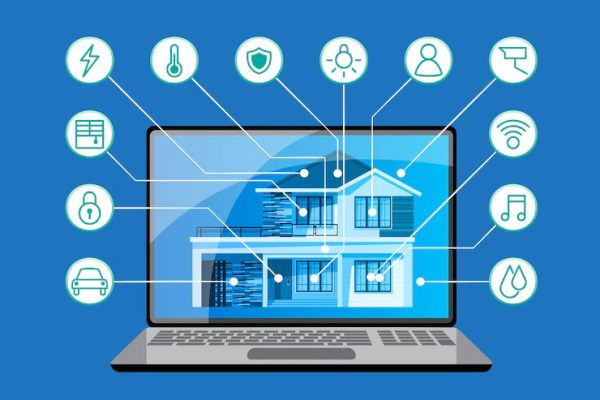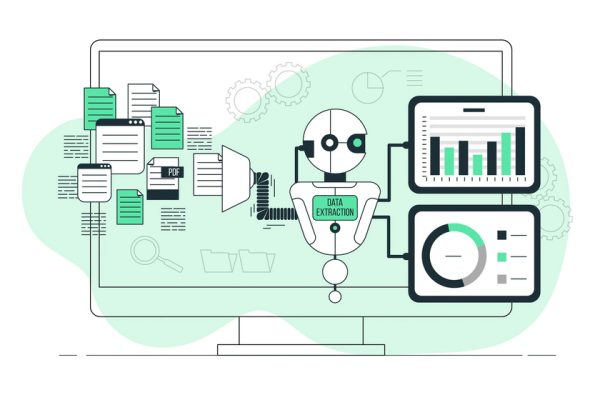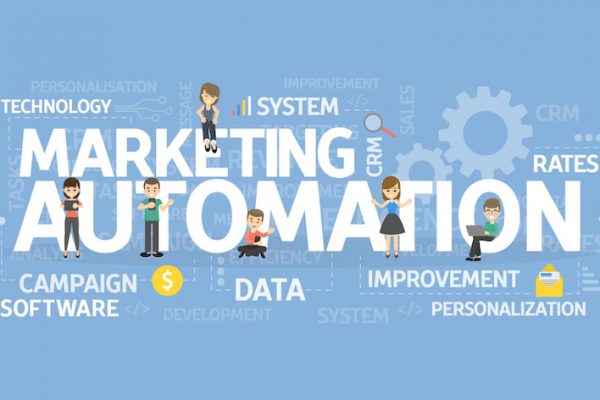Customer relationship management (CRM) is a software solution that helps companies manage their customers better. It’s used by businesses to track their interactions with clients, collect data about them and make the most of them.
There is no doubt that it has become an integral part of modern businesses, helping organizations streamline their processes, improve customer experiences, and increase overall efficiency.
However, not all businesses understand the true potential of CRM and the various problems it can solve. In this blog post, let’s explore what problems can CRM solve.
1. Make It Easier to Measure Your KPIs.
CRM is a tool that can help you measure your KPIs, which are important for measuring your business.
KPIs are metrics used to evaluate the performance of an organization or product. They’re often expressed as numbers or percentages that show how well an organization has met its goals over time, and they can be used by managers to determine whether they need to change their strategy or tactics.
The most common KPI metrics include:
- Revenue per user – This metric measures profit generated per active subscriber (aka customer). For example: if 1 million people pay $10/month each month on average, then this would mean $1 billion in revenue per month — not bad!
- Cost-per-lead – This metric measures cost incurred when acquiring new customers through marketing campaigns compared with how many leads were converted into paying customers over time.
2. Improve Customer Satisfaction.
Customer satisfaction is a key metric for many businesses. It’s also a key indicator of how well your business is doing. So, it’s important that you’re able to track and improve customer satisfaction in a CRM system.
When you use CRM software, you’ll be able to see which customers are leaving negative reviews online, which ones are posting positive reviews on social media sites like Facebook or Yelp and what they say about your brand.
This will give you insight into what areas need improvement so that when someone posts negative feedback online they’re not just complaining about something but rather pointing out an actual problem with the product or service itself (which could lead them back into buying from you).
Here are some tips to improve customer satisfaction:
- Listen to your customers: Encourage customers to provide feedback, listen to their complaints and suggestions, and take action on their feedback. This will show them that you value their opinions and that you are committed to improving their experience.
- Provide excellent customer service: Train your customer service team to be friendly, helpful, and efficient. Make sure they have the information and resources they need to resolve customer issues quickly and effectively.
- Be responsive: Respond to customer inquiries and complaints in a timely manner. If a customer is waiting for a response, they are likely to become frustrated and dissatisfied.
- Offer multiple communication channels: Provide customers with multiple ways to get in touch with you, such as email, phone, chat, and social media. This will make it easier for them to reach you and will increase their satisfaction.
- Personalize your interactions: Personalize your interactions with customers by using their name, remembering their previous interactions, and providing them with tailored recommendations.
3. More Efficient Sales Teams and Processes.
CRM is a great way to track your sales pipeline, manage your sales team and process, and ensure that you always have the information you need at hand.
- Sales Pipeline Tracking: CRM allows you to create a detailed view of all leads that are in the pipeline or waiting for approval before they can be sold. This can help you see which customers are most likely to close a deal and what stage they are currently in their buying process. So, you know how much time it will take them to close the sale once they do decide on one of your products or services.
- Sales Team Management: A good CRM system will give employees access not only to basic information about themselves (including their email address), but also provide them with real-time access. So, they don’t have any excuse not knowing what’s going on when working with clients/customers directly! With this kind of technology behind them (and maybe even some training), it’ll be easier than ever before for anyone involved
4. Better Customer Communications via Email & SMS.
CRM is a great way to improve your customer communications. It can help you get more out of your marketing, which in turn will help you stay organized and improve customer service. CRM also allows you to get more out of sales so that you’re selling smarter by using data-driven strategies for each client.
You can use CRM as an information hub for all marketing efforts, including email marketing, social media campaigns and website content creation. With one system in place, there’s no need for multiple tools or spreadsheets anymore!
Here are some benefits of using a CRM system to improve customer communications:
- Consolidated customer data: A CRM system consolidates customer data from various sources, such as emails, phone calls, social media, and support tickets, in a single place. This allows you to have a complete and up-to-date view of each customer’s history and preferences, which can help you tailor your interactions and provide better support.
- Improved response times: With a CRM system, you can prioritize and route customer inquiries to the right team members, reducing response times and improving the customer experience.
- Consistent communication: A CRM system ensures that all customer interactions are consistent, regardless of which team member is handling the inquiry. This can help you maintain a professional and cohesive brand image.
- Better collaboration: CRM systems often include collaboration features that allow team members to share information and coordinate their efforts, which can improve communication and reduce the risk of errors or missed opportunities.
- Automated processes: Many CRM systems offer automation capabilities that can streamline repetitive tasks and improve efficiency, freeing up time for your team to focus on more high-value activities.
5. Create Personalized Marketing Campaigns for Each Customer.
The CRM system allows you to know your customers better, creating personalized marketing campaigns that are more effective at getting them what they want.
For example, let’s say that you’re working with a large online retailer who sells products based on recommendations from their buyers. If someone has recently bought something from this company and left feedback on their purchase (which is how most retailers get new customers), then the CRM system will identify that person as being interested in purchasing from this retailer again.
The next time this customer visits the site, he will receive an email from his favorite clothing brand offering him an exclusive discount code for 20% off any item in his cart. And, all without leaving any sort of trail behind showing where those discounts came from.
Here’s how CRM can be used to create personalized marketing campaigns:
- Customer Segmentation: CRM systems allow you to segment your customer database based on various factors, such as demographics, buying behavior, and preferences. This makes it easier to target specific groups with relevant, personalized marketing messages.
- Behavioral Analytics: CRM systems can track and analyze customer behavior across multiple channels, such as email, social media, and website interactions. This information can be used to create targeted marketing campaigns that are more likely to resonate with individual customers.
- Personalized Content: By using the customer data stored in the CRM system, you can create tailored content, such as personalized emails, product recommendations, and special offers, that are relevant to each customer’s interests and preferences.
- Multichannel Campaigns: CRM systems can support multichannel marketing campaigns, allowing you to reach customers through multiple touchpoints, such as email, social media, SMS, and direct mail. This can help you increase the impact of your campaigns and improve customer engagement.
- Measurement and Optimization: CRM systems can track the performance of your marketing campaigns, providing valuable insights into what’s working and what’s not. This information can be used to optimize your campaigns over time and improve results.
6. Reduce Churn & Increase Loyalty by Understanding Customers Better.
It is a powerful tool to help you understand your customers, their needs, goals and pain points.
CRM helps you to understand the habits of each customer individually. This can be done through:
- Customer Profiles (which are based on their demographic data)
- Call Recording (with recordings of calls made by customers)
- CRM helps in understanding what products or services your customers want from you. This can be done by gathering information about past purchases as well as analyzing all types of data like call center logs, web analytics reports etc.
7. CRM Helps You Stay Organized.
If you’re working on a project and need to keep track of customer interactions, data, and preferences, then CRM is the tool for the job. It’s also great for tracking things like trends or feedback from customers in order to improve your product or service offerings.
- Centralized Database: A CRM system provides a centralized database where all customer information is stored, making it easy for teams to access and share customer data. This eliminates the need for teams to search through multiple systems and spreadsheets for customer information, saving time and improving efficiency.
- Contact Management: CRMs provide a comprehensive view of each customer, including their contact information, history of interactions, and communication preferences. This helps businesses stay organized and up-to-date with their customers.
- Task Management: CRMs often come with task management features that help teams prioritize their to-do list, set reminders, and delegate tasks to team members. This helps teams stay organized and focused on meeting their goals.
- Sales Pipeline Management: CRMs provide an overview of the sales pipeline, including the status of each lead, their buying journey, and the next steps needed to close a deal. This helps teams stay organized and focused on their sales targets.
- Marketing Automation: CRMs often include marketing automation features that help businesses automate repetitive tasks, such as email campaigns and social media posts. This helps teams stay organized and efficient while ensuring that all marketing efforts are aligned with their overall strategy.
8. CRM Can Help You Get More Out of Your Marketing.
A CRM system can help businesses get more out of their marketing efforts by providing valuable insights and enabling them to create more effective campaigns.
Here are a few ways a CRM can help businesses maximize their marketing efforts:
- Customer Segmentation: CRMs provide businesses with a wealth of customer data, including demographic information, purchasing history, and communication preferences. This information can be used to segment customers into groups based on shared characteristics, which allows businesses to create more targeted marketing campaigns.
- Personalized Marketing: With a CRM, businesses can personalize their marketing efforts for each customer, including the use of their name, past purchases, and other relevant information. This type of personalization can help increase customer engagement and improve conversions.
- Lead Scoring: CRMs can help businesses prioritize their leads based on factors such as demographics, behavior, and engagement with marketing efforts. This allows businesses to focus their marketing efforts on the most promising leads, resulting in a higher return on investment.
- Campaign Management: CRMs provide businesses with the tools they need to manage their marketing campaigns, including the ability to track results and measure campaign performance. This allows businesses to make data-driven decisions about their marketing efforts and optimize their campaigns for maximum impact.
9. CRM Is Useful for Salespeople.
A CRM system can be very useful for salespeople in several ways:
- Improved Lead Management: CRMs provide a centralized database where salespeople can manage their leads and track their progress through the sales funnel. This allows salespeople to prioritize their efforts, focus on the most promising leads, and move deals forward more effectively.
- Increased Productivity: With a CRM, salespeople have access to all of the information they need about a customer in one place, including their contact information, buying history, and previous interactions. This eliminates the need for salespeople to search through multiple systems and spreadsheets, saving time and increasing their productivity.
- Better Collaboration: CRMs provide a platform for sales teams to collaborate and share information, making it easier for teams to work together to close deals. This can lead to increased success rates and faster deal cycles.
- Improved Customer Communication: CRMs often include communication tools, such as email templates and automated follow-up reminders, that can help salespeople stay in touch with their customers more effectively. This can help improve customer engagement and increase the likelihood of closing deals.
- Data-Driven Insights: With a CRM, salespeople can access valuable data and insights about their customers and their sales performance. This allows salespeople to make data-driven decisions about their sales strategy and optimize their approach for maximum impact.
10. CRM Can Improve Customer Service.
The most important thing to know about CRM is that it tracks customers, leads and opportunities. You can use this information to better understand what is happening with each customer, or lead or opportunity as they come through your system.
This information allows you to act quickly on any issues that surface in the system. So, no one feels like they’re being forgotten or ignored when they contact you again later down the line (or worse: not receiving any response at all).
- Centralized Customer Information: A CRM provides a centralized database where all customer information is stored, including contact information, purchase history, and communication preferences. This makes it easier for customer service teams to access and share customer information, providing a more consistent and personalized experience for customers.
- Improved Response Time: With a CRM, customer service teams can quickly access customer information and respond to inquiries and requests more efficiently. This can help improve response times and reduce customer wait times, leading to increased customer satisfaction.
- Multi-Channel Support: CRMs often include marketing tools for handling customer inquiries and support requests through multiple channels, including email, phone, and social media. This allows businesses to provide customers with a more seamless experience, regardless of how they prefer to communicate.
- Knowledge Management: CRMs can provide a centralized knowledge base where customer service teams can access information and resources to help them resolve customer issues more effectively. This can help reduce response times, increase accuracy, and improve the overall quality of customer service.
- Customer Feedback: CRMs can help businesses collect and analyze customer feedback, providing valuable insights into customer needs and expectations. This can help businesses identify areas for improvement and make changes to their customer service process to provide a better experience for customers.
How Hubspot CRM Can Help Solve Customer Problems?
HubSpot CRM is a customer relationship management (CRM) platform that helps businesses manage and improve customer interactions and relationships. It can help solve customer problems in several ways:
- Centralized customer information: HubSpot CRM provides a single source of truth for all customer information, ensuring that everyone on the team has access to the most up-to-date and accurate information.
- Better communication: It allows businesses to communicate with customers in a more organized and efficient way. It integrates with multiple channels, such as email, live chat, and social media, to provide a seamless communication experience for customers.
- Improved organization: HubSpot CRM enables businesses to organize and prioritize customer interactions, follow-ups, and tasks. This can help teams to stay on top of customer needs and resolve issues in a timely manner.
- Data-driven insights: The platform provides businesses with valuable insights into customer behavior and interactions, which can be used to identify trends and opportunities for improvement.
- Automated processes: It includes several tools for automating repetitive tasks, such as lead nurturing, follow-up reminders, and task assignment. This can help teams to work more efficiently and provide better customer support.
Conclusion
A lot of businesses are missing out on the benefits of a customer relationship management (CRM) system. You don’t need to be an expert in marketing, sales or finance to use this software.
In fact, it can help any business get more out of its marketing efforts by helping you organize all your contacts and campaigns.
We hope you got the overall idea of what problems can CRM solve? If you’re looking for a hassle-free CRM solution for your customer then the HubSpot can be an ideal choice.
Sign up now and enjoy FREE trial.





